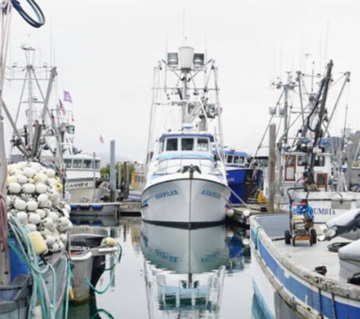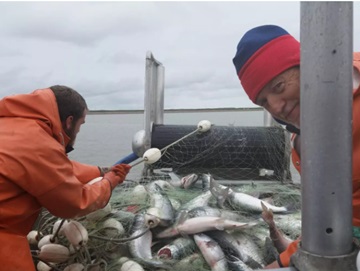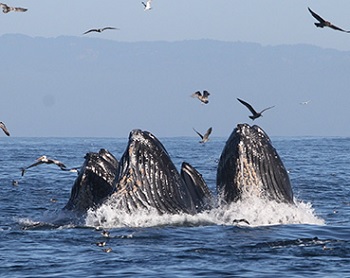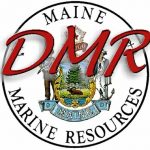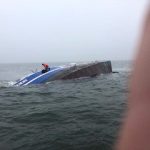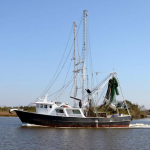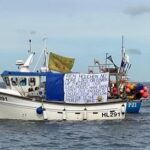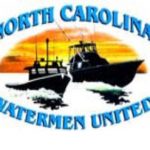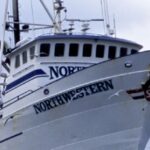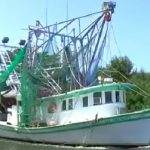Tag Archives: Alaska
OPINION: North Pacific Fishery Management Council is acting to reduce bycatch
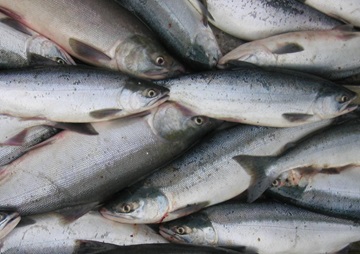 In a recent opinion piece, Brooke Woods, Linda Behnken and Nanci Morris Lyon stated, “Federal fisheries off Alaska are managed via the dictates of the North Pacific Fishery Management Council (NPFMC), which has done little to address the trawl fleet’s enormous bycatch of species immeasurably important to Alaskans.” Nothing could be further from the truth The council adopted hard caps for chinook salmon in the Bering Sea trawl pollock fisheries that vary depending upon the expected returns to western Alaska rivers. When expected returns are low, the caps are adjusted downward. Additionally, the fishing industry has stepped forward to implement chinook salmon avoidance measures that hold each vessel accountable for limiting bycatch to below the caps. In fact, the fleet is well below their caps, recognizing the need to rebuild these stocks. >>click to read<< 15:55
In a recent opinion piece, Brooke Woods, Linda Behnken and Nanci Morris Lyon stated, “Federal fisheries off Alaska are managed via the dictates of the North Pacific Fishery Management Council (NPFMC), which has done little to address the trawl fleet’s enormous bycatch of species immeasurably important to Alaskans.” Nothing could be further from the truth The council adopted hard caps for chinook salmon in the Bering Sea trawl pollock fisheries that vary depending upon the expected returns to western Alaska rivers. When expected returns are low, the caps are adjusted downward. Additionally, the fishing industry has stepped forward to implement chinook salmon avoidance measures that hold each vessel accountable for limiting bycatch to below the caps. In fact, the fleet is well below their caps, recognizing the need to rebuild these stocks. >>click to read<< 15:55
Doug Vincent-Lang
A business in crisis
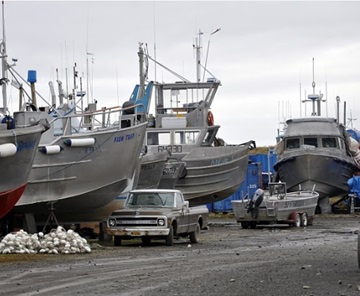 After years of choking on record runs of Bristol Bay sockeye salmon and near-record runs of heavily farmed, low-value pink salmon, the Alaska fishing industry is in chaos with processors now pleading for more government subsidies and coddled commercial fishermen demanding yet more disaster aid. One could blame global warming, which has led to historically unprecedented harvests of Alaska salmon despite whatever nonsense to the contrary the mainstream media might have reported, but the industry’s problems are far more complex than just trying to sell high-priced seafood in Western markets where the sales of animal protein are dominated by chicken, beef and pork. Some of the industry’s issues here are rooted in its long history. For most of the years after commercial fishing began in Alaska in the late 1800s, the business dealt almost wholly in canned salmon. >>click to read<< 08:41
After years of choking on record runs of Bristol Bay sockeye salmon and near-record runs of heavily farmed, low-value pink salmon, the Alaska fishing industry is in chaos with processors now pleading for more government subsidies and coddled commercial fishermen demanding yet more disaster aid. One could blame global warming, which has led to historically unprecedented harvests of Alaska salmon despite whatever nonsense to the contrary the mainstream media might have reported, but the industry’s problems are far more complex than just trying to sell high-priced seafood in Western markets where the sales of animal protein are dominated by chicken, beef and pork. Some of the industry’s issues here are rooted in its long history. For most of the years after commercial fishing began in Alaska in the late 1800s, the business dealt almost wholly in canned salmon. >>click to read<< 08:41
Sinking of the Wild Alaskan – Document Dump #42
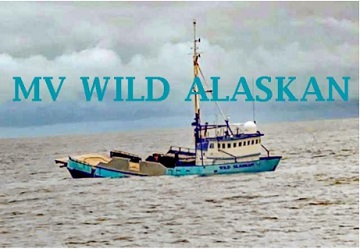 Document Dump #42 – In this Document Dump, I am releasing to the Public clear, convincing and undeniable evidence that certain Alaska State Troopers and Kodiak Chief of Police, Tim Putney are actively trying to cover-up one of Alaska’s biggest felony theft and destruction of property crimes in the history of this great state. I am a full supporter of Law Enforcement, just not the corrupt ones. As I have stated before, the actions of the Alaska State Troopers and the Alaska Bureau of Investigations have now morphed into a “HUB AND SPOKED WHEEL” RICO CONSPIRACY to cover-up a major crime which these people have no immunity from. There is no other way to explain it. Photos, >>click to read Document Dump #42<<. and more. 18:28
Document Dump #42 – In this Document Dump, I am releasing to the Public clear, convincing and undeniable evidence that certain Alaska State Troopers and Kodiak Chief of Police, Tim Putney are actively trying to cover-up one of Alaska’s biggest felony theft and destruction of property crimes in the history of this great state. I am a full supporter of Law Enforcement, just not the corrupt ones. As I have stated before, the actions of the Alaska State Troopers and the Alaska Bureau of Investigations have now morphed into a “HUB AND SPOKED WHEEL” RICO CONSPIRACY to cover-up a major crime which these people have no immunity from. There is no other way to explain it. Photos, >>click to read Document Dump #42<<. and more. 18:28
Commercial fish report shows impact of set-net closure
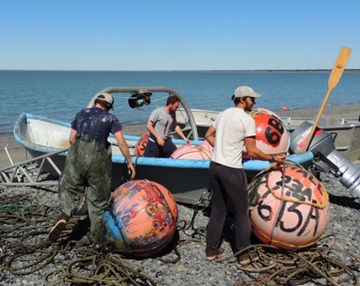 A recent report from the Alaska Department of Fish & Game shows the impact of the closure of a prominent fishery on the 2023 season for the commercial salmon industry in Upper Cook Inlet. Set-netters are worried about the future of their fishery, and the possible long-term impacts of over escapement. In Upper Cook Inlet, the report says, the 2023 commercial salmon harvest was about 40% lower than the 20-year average. Commercial fishermen caught 1.9 million salmon in the upper inlet, compared to the 20-year average of 3.1 million. Fish & Game attributes most of that decline to the closure of the east side set-net fishery, which the department closed before the season even began in anticipation of low king salmon numbers. >>click to read<< 13:04
A recent report from the Alaska Department of Fish & Game shows the impact of the closure of a prominent fishery on the 2023 season for the commercial salmon industry in Upper Cook Inlet. Set-netters are worried about the future of their fishery, and the possible long-term impacts of over escapement. In Upper Cook Inlet, the report says, the 2023 commercial salmon harvest was about 40% lower than the 20-year average. Commercial fishermen caught 1.9 million salmon in the upper inlet, compared to the 20-year average of 3.1 million. Fish & Game attributes most of that decline to the closure of the east side set-net fishery, which the department closed before the season even began in anticipation of low king salmon numbers. >>click to read<< 13:04
Alaska seafood harvesting jobs decline as fish crashes, pandemic and other factors take toll
Alaska fish-harvesting employment declined in 2022, a continuing yearslong slide caused by a variety of factors, according to an analysis by the state Department of Labor and Workforce Development. Employment for people harvesting seafood dropped by about a quarter from 2015 to 2022, according to the analysis, published in the November issue of Alaska Economic Trends, the department’s monthly research magazine. The industry lost ground compared to other sectors of the Alaska economy, the analysis found. Seafood harvesting accounted for 7.3% of Alaska jobs in July of 2021, but only 5.7% of Alaska jobs were in seafood harvesting in the following July. Fishery work is highly seasonal, and July is the peak month for it. >>click to read<< 16:15
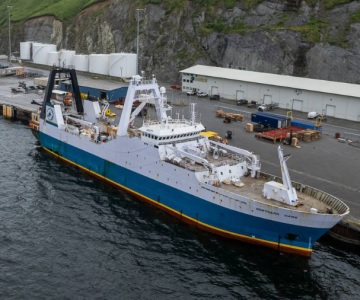
Bering Sea fish bounty brings help, headaches for trawlers
A federal lawsuit filed this year by two Alaska tribal organizations — the Association of Village Council Presidents and Tanana Chiefs Conference — seeks a court order to force federal regulators to reassess pollock harvest levels. The plaintiffs note the pollock nets, which often touch bottom, may harm crabs and other sea life and also cite the trawlers’ incidental take of salmon. The lawsuit is opposed by the At-Sea Processors Association, a group that includes Coastal Villages and had intervened in the case on the side of the federal government. “We felt compelled to do it. We don’t have any negative feelings towards them. But we think it’s kind of a misguided effort,” said Eric Deakin, Coastal Villages CEO, who works out of an Anchorage headquarters office. Photos, >>click to read<< 09:20
With little movement on salmon bycatch, Alaska advocates look to Biden administration for executive action
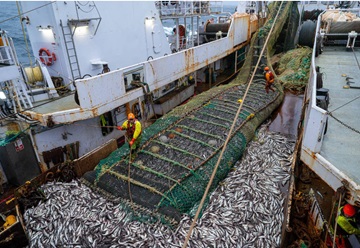 Amid catastrophic shortfalls in salmon harvests in some of Alaska’s rural, Indigenous communities, advocates have pleaded for a crackdown on unintentional catch of those same salmon by the trawl vessels that harvest billions of pounds of whitefish in the Bering Sea. But the politically appointed regional council that manages Bering Sea fisheries has largely resisted those requests. So instead, advocates are now taking another approach. They’re pushing the Biden administration for a workaround: a rewrite of the federal guidelines that tell the regional council, and its counterparts across the country, how to manage all the fisheries under their supervision. >>click to read<< 18:40
Amid catastrophic shortfalls in salmon harvests in some of Alaska’s rural, Indigenous communities, advocates have pleaded for a crackdown on unintentional catch of those same salmon by the trawl vessels that harvest billions of pounds of whitefish in the Bering Sea. But the politically appointed regional council that manages Bering Sea fisheries has largely resisted those requests. So instead, advocates are now taking another approach. They’re pushing the Biden administration for a workaround: a rewrite of the federal guidelines that tell the regional council, and its counterparts across the country, how to manage all the fisheries under their supervision. >>click to read<< 18:40
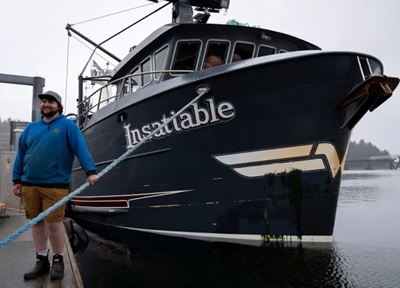
In 42 photos, See how Dungeness crab is caught off Kodiak Island, Alaska
Captain Garrett Kavanaugh of the Fishing Vessel Insatiable stands for a portrait in front of his 58’ boat at the harbor in Kodiak, Alaska. As ocean temperatures rise, fishermen everywhere must adapt to harvesting different species. Garrett Kavanaugh, captain of the Fishing Vessel Insatiable out of the port of Kodiak Island, has invested large equipment, fuel, and labor, betting on Dungeness crabs as the future of his Alaskan fishing business. >>click to read<< 20:39
Public input sought on federal management of Cook Inlet salmon fishing
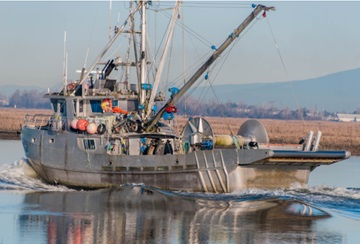 NOAA is asking for residents’ opinion on a major fishing issue. The National Oceanic and Atmospheric Administration is looking for public comments on Amendment 16 which would allow the federal government to manage commercial and recreational salmon fishing in the Cook Inlet Exclusive Economic Zone. The proposed rule would put the federal government, not the state, in charge of salmon fishing there. Alaska would continue to manage all fishing in state waters. >>click to read<< 11:31
NOAA is asking for residents’ opinion on a major fishing issue. The National Oceanic and Atmospheric Administration is looking for public comments on Amendment 16 which would allow the federal government to manage commercial and recreational salmon fishing in the Cook Inlet Exclusive Economic Zone. The proposed rule would put the federal government, not the state, in charge of salmon fishing there. Alaska would continue to manage all fishing in state waters. >>click to read<< 11:31
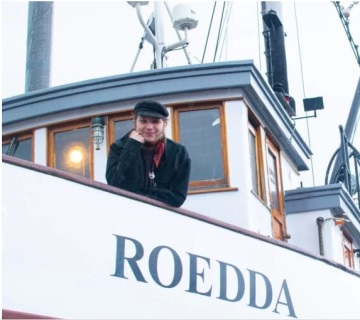
A Petersburg tender holds open mics on board, with its fish hold as the sound stage
There’s a nearly 100-year-old wooden boat in Petersburg that’s become a staple of the tight-knit local music scene. Musicians in town have a few performance spaces to choose from, a lot of them in bars. But the crew of the Roedda brings a unique option with them when they come to town — transforming the boat’s fish hold into an improvised sound stage. It was a brisk Thursday night in September in Petersburg’s South Harbor. The chill was already starting to set in, and the people were starting to pour out of town. Alex Deacon is the captain of the Roedda. But tonight, she’s also the master of ceremonies for an open mic on board — the last of the season. >>click to read<< 15:10
As the once-lucrative Bering Sea crab harvest resumes, Alaska’s fishers face challenges
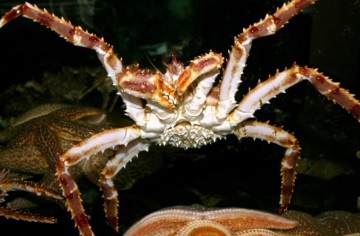 In the short term, Alaska crab fishers and the communities that depend on them will get a slight reprieve from the disastrous conditions they have endured for the past two years, with harvests for iconic red king crab to open on Sunday. In the long term, the future for Bering Sea crab and the people who depend on it is clouded by environmental and economic upheaval. The decision by the Alaska Department of Fish and Game to open harvests of Bristol Bay red king crab after an unprecedented two-year shutdown was a close call, a state biologist told industry members during a meeting on Thursday. >>click to read<< 16:08
In the short term, Alaska crab fishers and the communities that depend on them will get a slight reprieve from the disastrous conditions they have endured for the past two years, with harvests for iconic red king crab to open on Sunday. In the long term, the future for Bering Sea crab and the people who depend on it is clouded by environmental and economic upheaval. The decision by the Alaska Department of Fish and Game to open harvests of Bristol Bay red king crab after an unprecedented two-year shutdown was a close call, a state biologist told industry members during a meeting on Thursday. >>click to read<< 16:08
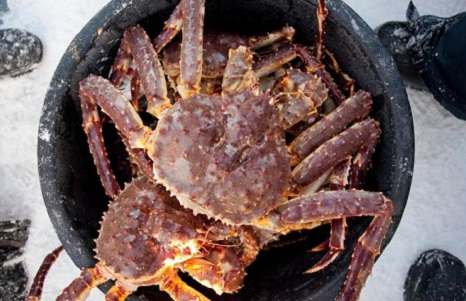
Bristol Bay red king crab, tanner crab fisheries open Sunday
The Bristol Bay red king crab fishery is back on track, after being closed for two years, with a total allowable catch of 2.15 million pounds – just a bit lower than when it was last opened in 2020 at 2.6 million pounds. The announcement on Friday, Oct. 6, was cheered by crab captains and Alaska Bering Sea Crabbers, as a way to get back out doing what they loved, pay some bills, and keep crew working, all while keeping the crab resource sustainable for generations to come. Veteran crabber Glenn Casto, captain of the FV Pinnacle, called it a start in the right direction, that will help pay some bills and help out crew. >>click to read<< 08:20
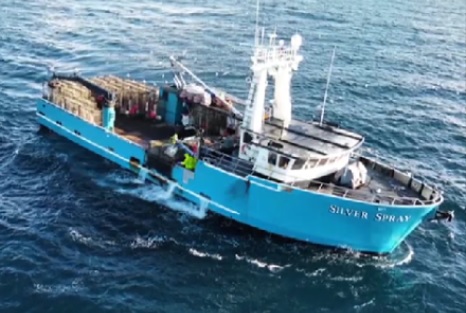
Another Bering Sea snow crab season closure brings more financial hardships for fishermen
“This is something that’s in our blood,” said Gabriel Prout, the owner and a deckhand of the 116-foot F/V Silver Spray. However, now his passion and family tradition is in jeopardy. On Oct. 6, the Alaska Department of Fish and Game announced it was closing the 2023-24 Bering Sea snow crab season for the second season in a row. “The stock is currently at all-time low levels from the survey time series,” said Ethan Nichols, the ADF&G acting area management biologist for the Bering Sea & Aleutian Islands region. “So, the threshold for opening is that total mature male biomass has to be at least 25% of long-term average. And in 2023 total mature male biomass is estimated to be between 15 and 19% of the long-term average.” The news felt like a punch to the gut for Prout, whose family relies on the season for 80 to 90% of its revenue. Video, >>click to read<< 11:40
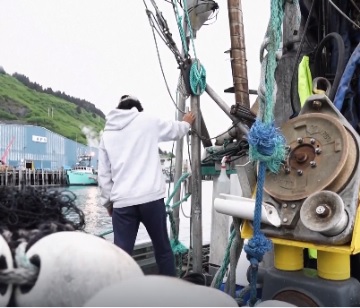
In a surging seafood industry, boat captains struggle to find workers
Alaska fishermen will be allowed to harvest lucrative red king crab in the Bering Sea
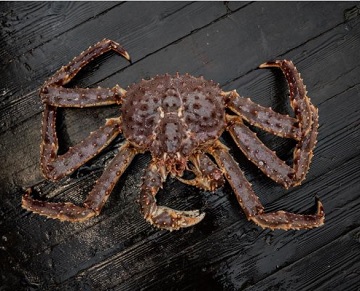 Alaska fishermen will be able to harvest red king crab for the first time in two years, offering a slight reprieve to the beleaguered fishery beset by low numbers likely exacerbated by climate change. There was no such rebound for snow crab, however, and that fishery will remain closed for a second straight year, the Alaska Department of Fish and Game announced Friday. “The Bristol Bay red king crab fishery for the prior two seasons were closed based on low abundance and particularly low abundance of mature-sized female crabs,” said Mark Stichert, the state department’s ground fish and shellfish management coordinator, “Based on survey results from this year, those numbers have improved, some signs of modest optimism in terms of improving abundance in Bristol Bay red king crab overall and that has allowed for a small but still conservative fishery for 2023 as the total population size is still quite low,” he said. >>click to read<<11:52
Alaska fishermen will be able to harvest red king crab for the first time in two years, offering a slight reprieve to the beleaguered fishery beset by low numbers likely exacerbated by climate change. There was no such rebound for snow crab, however, and that fishery will remain closed for a second straight year, the Alaska Department of Fish and Game announced Friday. “The Bristol Bay red king crab fishery for the prior two seasons were closed based on low abundance and particularly low abundance of mature-sized female crabs,” said Mark Stichert, the state department’s ground fish and shellfish management coordinator, “Based on survey results from this year, those numbers have improved, some signs of modest optimism in terms of improving abundance in Bristol Bay red king crab overall and that has allowed for a small but still conservative fishery for 2023 as the total population size is still quite low,” he said. >>click to read<<11:52
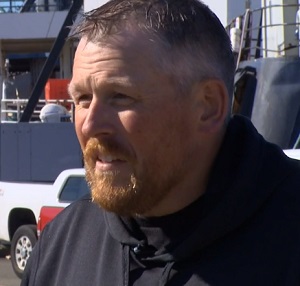
Alaska cancels snow crab harvest again due to population concerns
Crabbers from the Pacific Northwest who fish in Alaska had been watching and waiting for recommendations from the North Pacific Fishery Management Council, which met Thursday and Friday. Following the meetings, the Alaska Department of Fish and Game said Bering snow crab season will be closed for 2023-2024; Bristol Bay red king crab will open. Tanner crab will also be open for commercial fishermen. Both the snow crab and Bristol Bay red king crab seasons were closed in 2023. Crabbers and industry associations warned of the massive impact the decision would have on many small businesses, prompting calls by Congressional officials for an emergency declaration and federal aid. Video, >>click to read<< 08:18
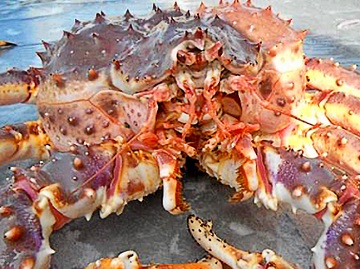
Bristol Bay red king crab fishery could return after two years on ice
The Alaska Department of Fish and Game is set to decide Friday whether or not to reopen the Bristol Bay red king crab fishery, which has been closed since 2021. Their decision will be based on recommendations from the North Pacific Fishery Management Council, which is meeting through Oct. 11 in Anchorage. During the Council’s meeting Tuesday, the Crab Plan Team presented data and analysis on Bristol Bay crab stocks from the summer trawl survey to the Scientific and Statistical Committee. Mike Litzow is a co-chair for the team and the shellfish assessment program manager and director at the National Oceanic and Atmospheric Administration’s Kodiak Lab. Litzow said while male and female crab are still at historic lows, the fishery is not at or approaching an “overfished” status. >>click to read<< 08:48
Alaska: 8 People Were Murdered Aboard a Fishing Boat. Though It’s the State’s Most Infamous Mass Killing, It’s Also Unsolved.
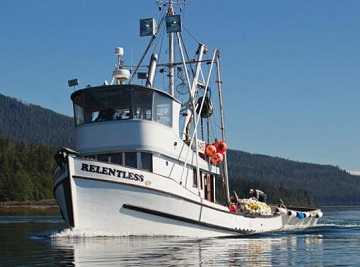 It was the men who worked on a troller named “Casino” who first noticed the fire. Thick black smoke was rising high against the misty skies of a crisp fall afternoon. A “Casino” crewmember alerted authorities in nearby Craig, Alaska, then rode their fishing boat less than a mile across the water to see if they could help. Their destination was Fish Egg Island, on the west side of Prince of Wales Island. It’s been over 40 years since the fire, the investigation and the discovery of the largest mass murder in the history of the state of Alaska. The tragedy goes unsolved, despite two trials. Residents of the fishing village of Craig have heard all the theories about who committed the horrible crimes that obliterated an entire family. Eight people were living aboard, half of whom were members of the Coulthurst family. Fishing boat veterans who had no known enemies and piloted a beautiful seine admired by the local fishing fleet. >>click to read<< 11:31
It was the men who worked on a troller named “Casino” who first noticed the fire. Thick black smoke was rising high against the misty skies of a crisp fall afternoon. A “Casino” crewmember alerted authorities in nearby Craig, Alaska, then rode their fishing boat less than a mile across the water to see if they could help. Their destination was Fish Egg Island, on the west side of Prince of Wales Island. It’s been over 40 years since the fire, the investigation and the discovery of the largest mass murder in the history of the state of Alaska. The tragedy goes unsolved, despite two trials. Residents of the fishing village of Craig have heard all the theories about who committed the horrible crimes that obliterated an entire family. Eight people were living aboard, half of whom were members of the Coulthurst family. Fishing boat veterans who had no known enemies and piloted a beautiful seine admired by the local fishing fleet. >>click to read<< 11:31
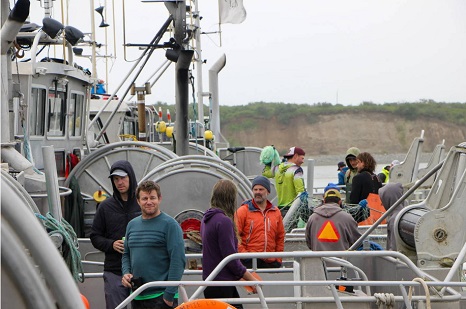
A 50-year situation: the market dynamic between fishing fleets and processors in Bristol Bay
This year, Bristol Bay’s 50 cents per pound base price had fleet members questioning the industry’s longevity. The dynamic between fleets and processors has existed for decades, with permit-holding fishing crews delivering their catch before knowing its cost, and processors relying on them to do so. KDLG’s Christina McDermott sat down with economist Gunnar Knapp, who spent decades studying Bristol Bay’s salmon markets, to learn more about the history of this relationship, and what it means going forward. Christina McDermott: Just a little background: this past summer, many fleet members were upset when the price was announced at 50 cents per pound, which is the lowest in the past 40 years when adjusted for inflation. The announcement came fairly late in the season. There was protest, and there was a lot of discussion on the processors’ respective power to set that price. And I’m interested in going back a little bit. What opportunities [did] the fleet have to sell their fish 50 years ago, let’s say, or 20 years ago? Has it always [been] this relationship [that] there are these processors and there are these fishermen? >>click to read<< 10:00
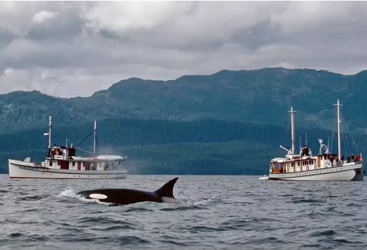
Orcas in Alaska are stealing fish right from the lines — and the new behavior seems to be killing them
Orcas in Alaska are exhibiting a “new behavior” that may be getting them in trouble, a local fisher’s association has said. They’ve been known to pluck fish off from commercial fishing gear for decades. But recently, they’ve been spotted lingering by the boats more often, appearing to “be feeding in front of the nets while fishing,” the group said. The Groundfish Forum, a Seattle-based trawl group that represents members operating 19 boats in the area, gave the warning in a statement shared by the Anchorage Daily News. “This new behavior” has never been documented and has marine scientists stumped, the Groundfish Forum said in the statement, dated September 21, >>click to read<< 18:01
Warming bonus
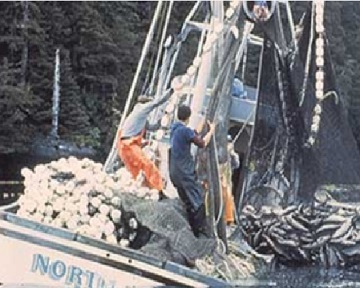 A warmer ocean continues to smile on Alaska commercial salmon fishermen, but the fish market is sadly another story. The 49th state these days finds itself vying with Russia to become the world’s biggest supplier of cheap salmon to stuff into cans and pouches while upscale consumers spend their money on nice, fat salmon filets. Norwegian salmon farmers – Leroy, Mowi and others who specialize in six-and-a-half to 13-pound Atlanatic – are posting record profits and worry about being taxed by the Norwegian government the way Alaska taxes oil, and Alaska fishermen are waiting to find out just how low the final price for the bulk of their catch, pink salmon that have in recent years averaged 3.4 pounds, according to Alaska Department of Fish and Game data. >>click to read<<
A warmer ocean continues to smile on Alaska commercial salmon fishermen, but the fish market is sadly another story. The 49th state these days finds itself vying with Russia to become the world’s biggest supplier of cheap salmon to stuff into cans and pouches while upscale consumers spend their money on nice, fat salmon filets. Norwegian salmon farmers – Leroy, Mowi and others who specialize in six-and-a-half to 13-pound Atlanatic – are posting record profits and worry about being taxed by the Norwegian government the way Alaska taxes oil, and Alaska fishermen are waiting to find out just how low the final price for the bulk of their catch, pink salmon that have in recent years averaged 3.4 pounds, according to Alaska Department of Fish and Game data. >>click to read<<
. >>click to read<< 11:55
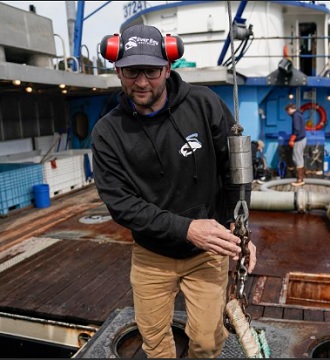
Alaskan fishers fear another bleak season as crab populations dwindle in warming waters
Gabriel Prout worked four seasons on his father’s crab boat, the Silver Spray, before joining his two brothers in 2020 to buy a half-interest plus access rights for a snow crab fishery that’s typically the largest and richest in the Bering Sea. Then in 2021, disaster: an annual survey found crabs crashing to an all-time low. Kevin Abena, who runs a fishing business with his father, also relies on tendering to stay afloat in the wake of the crab fishery closure. His vessel Big Blue, which his father built in the late 1970s, stopped fishing for most crab in Bristol Bay in 2010, but they still own access rights and take a percentage from other boats that fish their quota. Abena also fishes for halibut and black cod.>>click to read<< 12:31
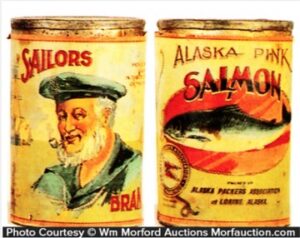
Know-nothing journalism
Credibility dies in a field of little mistakes. This is why it is painful to read what passes for news today: “Pink salmon get their nickname from their propensity to bite on anything pink.” Or so reported Gregory Scruggs of The Seattle Times after visiting West Seattle’s Lincoln Park on Aug. 22 for a story on Life/Outdoors in the Emerald City. Yes, and red salmon got their nickname for their propensity to bite on anything red and silvers on silver. And don’t forget those dog salmon. Note to the unwary: Leave Fido at home if you decide to pursue the latter. They have a propensity to bite on dogs. This is the reason there are so many three-legged dogs in villages along the Yukon River. All of this would be funny if, of course, it was funny. >>click to read<< 10:18
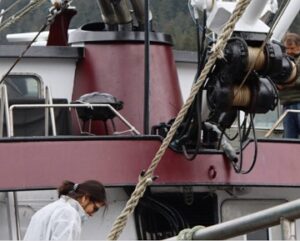
Commercial crab fishery closed for 2023-2024 season
The Alaska Department of Fish and Game has closed the commercial red and blue king crab fishery for the 2023-2024 season, the sixth year in a row, citing stock survey numbers that remain well below the regulatory threshold. The announcement made Wednesday is a blow to commercial fishers, who saw a significant drop in prices for chum (dog) and pink (humpback) salmon this year. “If they would open up the crab season for 10-15 days it would help bail us out of a terrible season,” said Norval Nelson, owner and operator of Star of the Sea, which was in Aurora Harbor. He made his comments before he learned of the news. >>click to read<<17:27
Eagle, Eagle, what are you going to do?
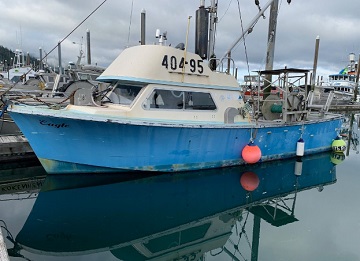 Dick and Carl Arvidson had sister ships built in Seattle. Carl named his the “Eagle,” and when they were transiting through the locks out of Lake Washington, Dick was in the lead. Evidently there was confusion for Carl, as over a loudspeaker, he heard an urgent announcement: “Eagle! Eagle! What are you going to do?” Dick and Carl were good friends and had both begun fishing in the Cordova area at a young age. Dick loved to tell the story about the maiden voyage of their matching boats. It was always good for a laugh. The Eagle still sits in the Cordova boat harbor and is used in set net operations by the Kritchens on the other side of the Sound. Seeing it reminded me of another eagle story witnessed from Renner’s Dragonfly. >>click to read<< 15:09
Dick and Carl Arvidson had sister ships built in Seattle. Carl named his the “Eagle,” and when they were transiting through the locks out of Lake Washington, Dick was in the lead. Evidently there was confusion for Carl, as over a loudspeaker, he heard an urgent announcement: “Eagle! Eagle! What are you going to do?” Dick and Carl were good friends and had both begun fishing in the Cordova area at a young age. Dick loved to tell the story about the maiden voyage of their matching boats. It was always good for a laugh. The Eagle still sits in the Cordova boat harbor and is used in set net operations by the Kritchens on the other side of the Sound. Seeing it reminded me of another eagle story witnessed from Renner’s Dragonfly. >>click to read<< 15:09
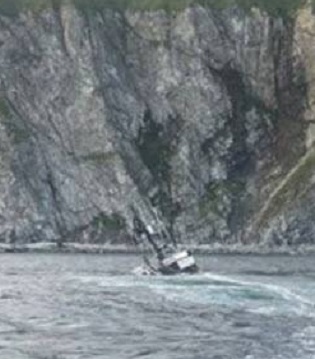
Submerged Rock Led to Fishing Vessel Grounding
A captain’s decision to navigate close to shore in an area with uncharted rocks led to the grounding and capsizing of a fishing vessel in Alaska last year, the National Transportation Safety Board (NTSB) said. The Challenger struck a submerged rock while fishing for salmon along the shore of Kodiak Island, Alaska on August 7, 2022. The vessel began taking on more water than the onboard pumps could handle. The captain and three crewmembers abandoned ship and were rescued by a nearby Good Samaritan fishing vessel, and the vessel capsized soon after. Another Good Samaritan vessel towed the fishing vessel to Larsen Bay. No injuries were reported. The Challenger was declared a total loss, with damages exceeding $600,000. >>click to read<< 10:51
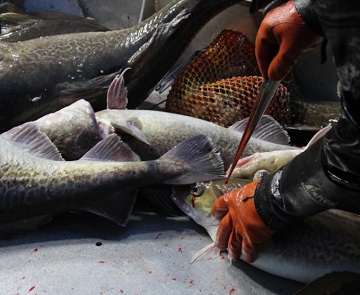
Catch Shares: Commercial trawlers to transition to quota system for Bering Sea and Aleutian Islands cod harvests
Starting in January, the fleet will fish under a “rationalization” system where each catcher vessel will have a maximum catch limit, which will be assigned through quota. The new regulations will require vessels trawling for cod in the area to form cooperatives, and quota will be administered through each co-op. Previously, the entire fishery had a total allowable catch that had to be caught within a certain amount of time. NOAA said this is the first time a catch share program has been implemented in Alaska since 2012. >>click to read<< 09:31
Economists unsure of how long huge salmon influxes will affect prices
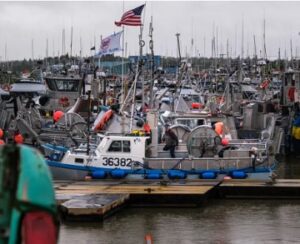 Kodiak fisherman Mike Friccero has fished for salmon for over four decades. He said he was expecting a low price for Bristol Bay salmon this summer but didn’t think rumors were true about how low it would drop. “Our processor gave us a letter, a narrative before the season started, saying that pricing conditions weren’t great but that they were going to go after it with all the resources that they utilized last year as far as tendering and logistics and resources in general,” he said. “And they asked if we would do the same.” Friccero said with lower salmon prices, he’s able to keep a decent paycheck but will have to be wary of his budget for next year. He said he hopes market conditions improve over the winter. >click to read< 11:27
Kodiak fisherman Mike Friccero has fished for salmon for over four decades. He said he was expecting a low price for Bristol Bay salmon this summer but didn’t think rumors were true about how low it would drop. “Our processor gave us a letter, a narrative before the season started, saying that pricing conditions weren’t great but that they were going to go after it with all the resources that they utilized last year as far as tendering and logistics and resources in general,” he said. “And they asked if we would do the same.” Friccero said with lower salmon prices, he’s able to keep a decent paycheck but will have to be wary of his budget for next year. He said he hopes market conditions improve over the winter. >click to read< 11:27
Updated: Crew member on Alaska factory trawler dies after possible ammonia exposure
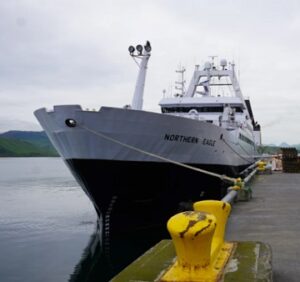 A crew member on an American Seafoods factory trawler died at sea last week, likely from an ammonia leak on board. U.S. Coast Guard Petty Officer Second Class John Highwater said that they received a satellite call from the Northern Eagle at about 4 a.m. on Aug. 18. “One of their crew members was found unresponsive in one of their engineering spaces,” Highwater said. “They believe there was an ammonia leak somewhere in the vessel that caused the person to fall unconscious.” Jeremy Baum, the Alaska Wildlife Trooper stationed in Unalaska/Dutch Harbor, identified the crew member as First Engineer David Kumah from Ghana in West Africa. >click to read< 13:09
A crew member on an American Seafoods factory trawler died at sea last week, likely from an ammonia leak on board. U.S. Coast Guard Petty Officer Second Class John Highwater said that they received a satellite call from the Northern Eagle at about 4 a.m. on Aug. 18. “One of their crew members was found unresponsive in one of their engineering spaces,” Highwater said. “They believe there was an ammonia leak somewhere in the vessel that caused the person to fall unconscious.” Jeremy Baum, the Alaska Wildlife Trooper stationed in Unalaska/Dutch Harbor, identified the crew member as First Engineer David Kumah from Ghana in West Africa. >click to read< 13:09






